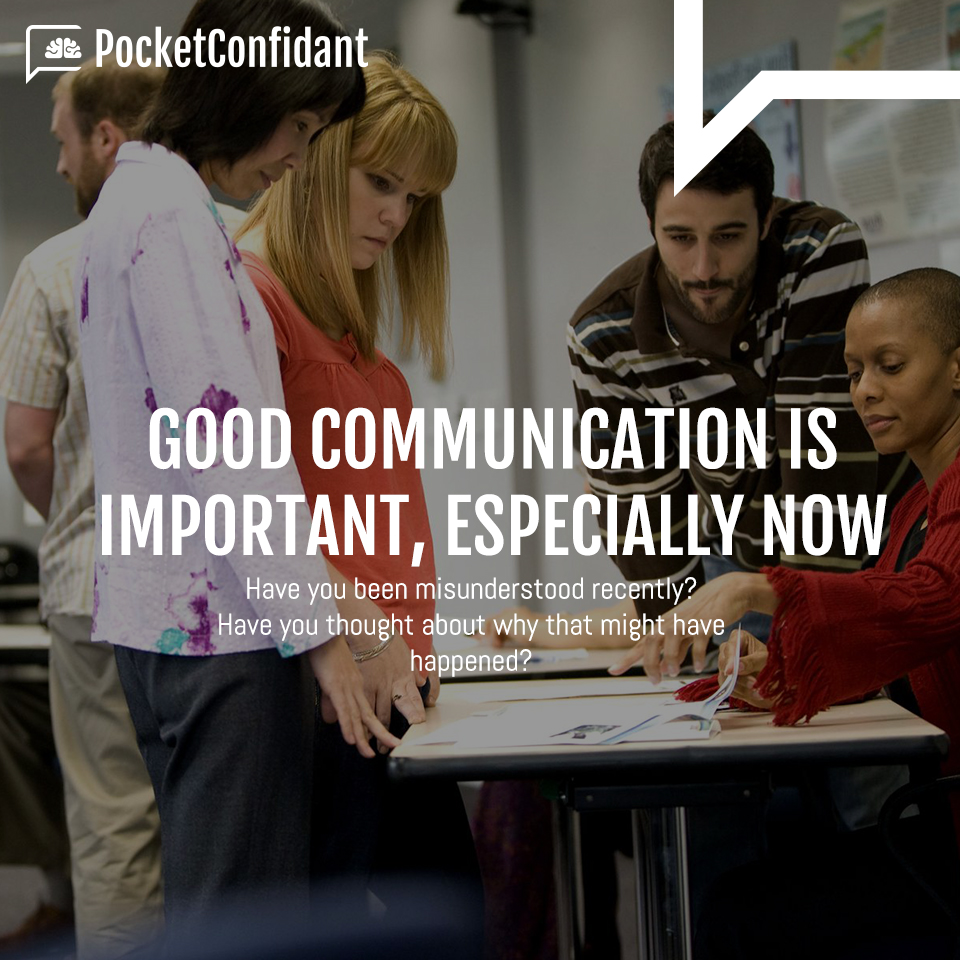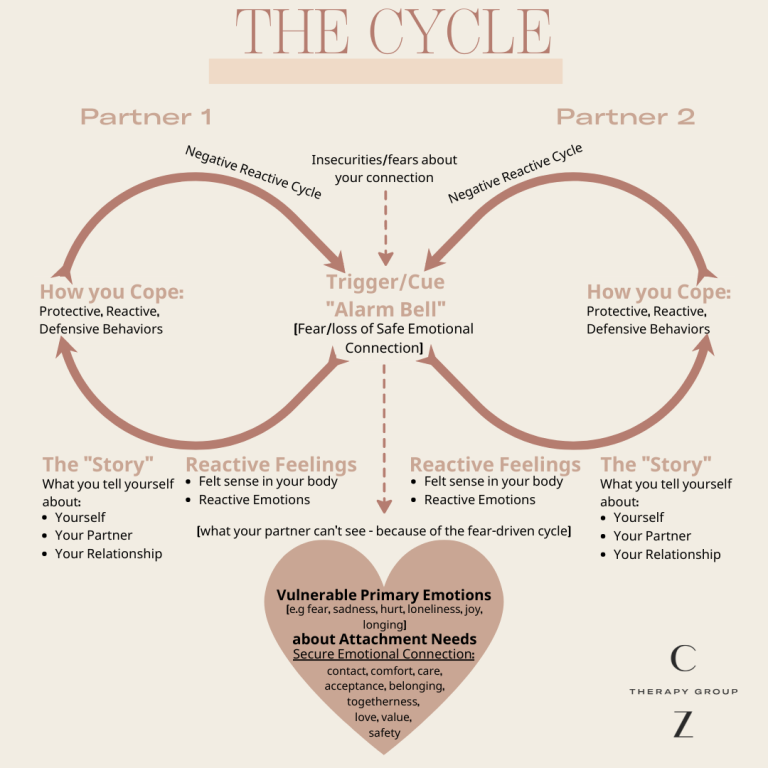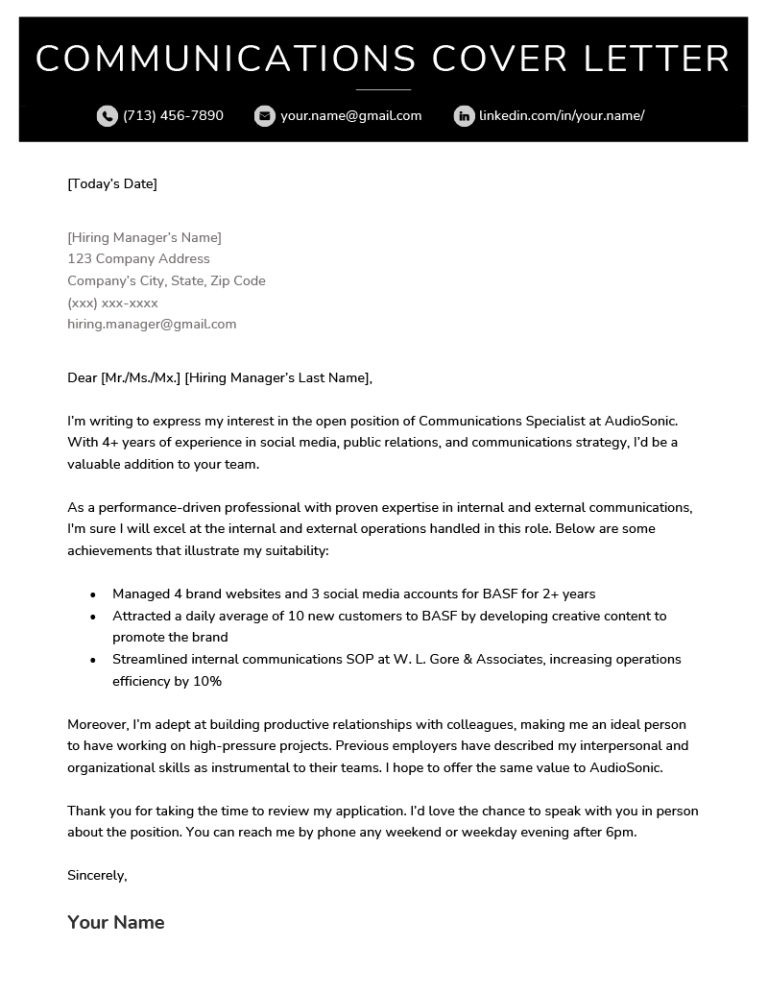Explore Why Communication is Important
Communication is important because it fosters understanding and connection between individuals and groups. Effective communication allows for the exchange of ideas, thoughts, and information, resulting in improved relationships and increased productivity.
In today’s fast-paced and interconnected world, communication plays a vital role in both personal and professional settings. It enables us to express ourselves clearly, listen actively, and collaborate effectively with others. Through communication, we can build trust, resolve conflicts, and establish strong bonds with those around us.
Moreover, effective communication enhances problem-solving skills, boosts creativity, and promotes efficiency in various aspects of life. By effectively conveying our thoughts and ideas, we can achieve better outcomes, make informed decisions, and avoid misunderstandings or confusion. Communication is the cornerstone of successful relationships and successful outcomes. It is through effective communication that we can truly connect with others, share our perspectives, and work together towards common goals.

Credit: pocketconfidant.com
The Power Of Effective Communication
Effective communication plays a crucial role in our daily interactions, enabling us to express ourselves clearly, understand others, and build strong relationships. It helps convey thoughts, ideas, and emotions, fostering collaboration and preventing misunderstandings. In both personal and professional settings, communication is essential for success.
Communication is the cornerstone of human interaction. It enables us to connect, understand, and collaborate with others. Effective communication has the power to transform relationships and enhance personal and professional success. In this section, we will explore the impact of effective communication and how it serves as the foundation of relationships and contributes to individual achievements.
Communication As The Foundation Of Relationships
- Open lines of communication foster trust and understanding among individuals.
- Clear and effective communication resolves conflicts and prevents misunderstandings.
- Good communication promotes empathy and strengthens interpersonal connections.
- Active listening and effective expression of thoughts and feelings build strong bonds.
The Impact Of Effective Communication On Personal And Professional Success
- In personal relationships, effective communication enhances intimacy and emotional connection.
- Clear and open communication allows for healthy relationship boundaries and effective problem-solving.
- Strong communication skills contribute to successful teamwork and collaboration in the workplace.
- Good communication fosters positive work environments and strengthens professional relationships.
- Effective communication enables individuals to convey their ideas and goals effectively, leading to career growth and opportunities.
Effective communication holds immense power in transforming relationships and driving personal and professional success. By establishing open lines of communication and honing our communication skills, we can build strong connections, resolve conflicts, and achieve our goals. So, let’s embrace the power of effective communication and unlock its true potential in our lives.
Enhancing Interpersonal Relationships Through Communication
Communication plays a crucial role in enhancing interpersonal relationships by facilitating understanding, fostering trust, and building stronger connections between individuals. Effective communication skills contribute to resolving conflicts, expressing emotions, and creating a supportive environment for healthy relationships to thrive.
Effective communication is a vital aspect of building and nurturing healthy interpersonal relationships. The way we communicate with others can greatly influence how we connect, understand, and relate to one another. By honing our communication skills, we can strengthen our relationships and foster a deeper sense of connection.
Two key components that play a significant role in enhancing interpersonal relationships through communication are active listening and nonverbal communication.
Active Listening As A Key Component Of Effective Communication:
- Engaging in active listening involves giving our full attention to the person speaking and making a conscious effort to understand their message. It allows us to truly comprehend what the other person is saying and respond thoughtfully and appropriately.
- By engaging in active listening, we demonstrate empathy, respect, and interest in the thoughts and feelings of the other person. This creates a safe and supportive space for open and honest communication to flourish.
- Active listening involves more than just hearing the words being spoken. It also includes paying attention to nonverbal cues, such as facial expressions and body language, to gain a deeper understanding of the speaker’s emotions and intentions.
- Through active listening, we can avoid misunderstandings, clarify information, and build trust with the person we are communicating with. It promotes effective communication by ensuring that the message is accurately received and understood.
Nonverbal Communication And Its Role In Understanding Messages:
- Nonverbal communication encompasses facial expressions, gestures, tone of voice, and body language. It complements spoken words and conveys additional meaning beyond the verbal message.
- Understanding nonverbal cues is crucial in effective communication, as it helps interpret the emotions, intentions, and attitudes of the speaker. It provides valuable context and helps prevent miscommunication.
- Nonverbal cues can either reinforce or contradict verbal messages. For example, a person may say they are happy, but their slumped shoulders and downcast eyes indicate otherwise. Being aware of these subtle signals enables us to better understand the true meaning behind the words being spoken.
- By paying attention to nonverbal communication, we can adjust our own communication style and adapt to the needs of the other person. This leads to improved rapport, mutual understanding, and strengthened interpersonal connections.
Enhancing interpersonal relationships through effective communication requires active listening and an understanding of nonverbal cues. By prioritizing these aspects of communication, we can foster stronger connections, resolve conflicts more effectively, and create a more harmonious and fulfilling interpersonal environment.
The Benefits Of Clear Communication In The Workplace
Effective communication is crucial in the workplace for various reasons. It enables teams to collaborate efficiently, enhances productivity, avoids misunderstandings, and builds stronger relationships among colleagues. Clear communication fosters a positive work environment and contributes to achieving common goals.
Effective communication is the cornerstone of a healthy and thriving workplace. When team members can express their thoughts, ideas, and concerns clearly and concisely, it leads to a multitude of benefits that enhance teamwork, problem-solving, and conflict resolution. Here are some of the key advantages of implementing clear communication in the workplace:
Enhancing Teamwork And Collaboration Through Effective Communication:
- Improved shared understanding: Clear communication ensures that everyone is on the same page and understands their roles and responsibilities within the team. This fosters a sense of unity and helps team members work towards a common goal.
- Increased productivity: When there is clear communication, tasks are delegated effectively, and team members can collaborate seamlessly. This leads to higher productivity levels as everyone knows what needs to be done and how to achieve it.
- Enhanced creativity and innovation: Transparent communication encourages the sharing of ideas and different perspectives. Team members feel comfortable voicing their thoughts, leading to a more diverse range of ideas, increased creativity, and innovative solutions to problems.
- Strengthened relationships: By promoting open and honest communication, trust is built among team members. This fosters stronger relationships, encourages teamwork, and creates a positive work environment.
The Role Of Communication In Conflict Resolution And Problem-Solving
- Effective conflict resolution: Clear communication plays a critical role in resolving conflicts in the workplace. When team members feel comfortable expressing their concerns and actively listening to others, conflicts can be addressed and resolved in a timely and satisfactory manner.
- Improved problem-solving: Clear communication enables team members to identify and address problems efficiently. Through open discussions and effective information sharing, solutions can be found more effectively, leading to better problem-solving outcomes.
- Reduced misunderstandings and mistakes: Misunderstandings and mistakes can be detrimental to productivity and morale. By communicating clearly, potential misunderstandings are minimized, leading to fewer errors and more efficient work processes.
- Promotion of a positive work culture: A workplace that values clear communication fosters a positive work culture. By encouraging open dialogue, active listening, and respect for different perspectives, team members feel valued and supported.
Clear communication is essential for enhancing teamwork, problem-solving, and conflict resolution in the workplace. It facilitates better understanding, increased productivity, and stronger relationships. By prioritizing effective communication, organizations can create a positive and thriving work environment where ideas can flourish and challenges can be overcome.
Communication In The Digital Age
Communication in the digital age is crucial as it connects people worldwide, fostering understanding and collaboration. Effective communication enhances relationships, boosts productivity, and facilitates knowledge sharing, making it vital in today’s interconnected world.
With the rapid advancement of technology, communication has undergone significant changes in the digital age. It has transformed the way we connect and interact with others, presenting us with both challenges and opportunities. In this section, we will explore the importance of adapting communication skills to virtual environments and how technology has revolutionized the way we communicate.
The Challenges And Opportunities Of Technology In Communication:
- Increased accessibility: Technology has made communication more accessible than ever before. People can now effortlessly connect with others around the world through various platforms and devices.
- Instant communication: The digital age has brought about real-time communication through messaging apps, social media platforms, and email. This instant connectivity allows for quick and efficient communication regardless of geographical boundaries.
- Global reach: The internet has provided individuals and businesses with an unprecedented global reach. Through online platforms, businesses can expand their customer base and connect with audiences worldwide.
- Enhanced collaboration: Technology has facilitated collaboration by providing tools and software that enable teams to work together remotely. Virtual meetings, project management platforms, and file-sharing systems have made it easier to collaborate with colleagues from different locations.
- Visual communication: The rise of video conferencing has revolutionized communication, enabling face-to-face interactions irrespective of physical presence. It allows for a richer and more personal connection compared to traditional audio calls.
- Data-driven insights: Technology has made it easier to collect and analyze data related to communication. Businesses can gain valuable insights into customer preferences, behaviors, and trends, helping them tailor their communication strategies accordingly.
In order to fully capitalize on the advantages of technology in communication, it is essential to adapt our communication skills to virtual environments. Here are some key points to consider:
- Clarity and conciseness: Virtual communication requires clear and concise messages to ensure understanding and avoid misinterpretation.
- Active listening: Despite the absence of physical cues, active listening is crucial in virtual communication. Paying full attention and demonstrating engagement through verbal and non-verbal cues helps create effective dialogue.
- Building rapport: Establishing a personal connection in virtual environments is essential for successful communication. Show empathy, ask open-ended questions, and actively participate in conversations to foster meaningful connections.
- Cultural awareness: Virtual communication often transcends cultural boundaries, necessitating sensitivity and understanding. Be mindful of cultural differences in communication styles and adjust your approach accordingly.
- Technological proficiency: Familiarize yourself with the various communication tools and platforms available. Develop the necessary skills to effectively navigate virtual environments and troubleshoot any technological issues that may arise.
The digital age has redefined communication, presenting us with both challenges and opportunities. Adapting our communication skills to virtual environments is crucial in order to harness the full potential of technology. By embracing the advancements in communication technology, we can foster meaningful connections, enhance collaboration, and reach a global audience like never before.
The Role Of Communication In Leadership
Communication plays a crucial role in effective leadership as it fosters understanding, transparency, and collaboration amongst team members. The exchange of information and ideas allows leaders to inspire and motivate their teams, ultimately driving success and achieving organizational goals.
Effective Communication As A Leadership Skill
Communication is a fundamental aspect of effective leadership. Leaders who possess strong communication skills can inspire and motivate their team members, fostering a positive and productive working environment. Clear and concise communication enables leaders to convey their vision, goals, and expectations, ensuring that their team is aligned and working towards a common objective.
By effectively communicating, leaders can establish trust, build stronger relationships, and facilitate collaboration within their team. Here are some key points to understand the role of communication in leadership:
- Building trust: When leaders communicate openly and honestly with their team members, they build trust and credibility. By sharing information, ideas, and feedback, leaders create an environment of transparency and reliability, which encourages trust among team members.
- Setting clear expectations: Effective communication allows leaders to clearly articulate their expectations to their team members. By providing clear instructions and guidelines, leaders ensure that everyone understands their roles, responsibilities, and objectives, minimizing confusion and enhancing productivity.
- Motivating and inspiring: Leaders who communicate effectively can inspire and motivate their team members. By conveying their vision, values, and goals, leaders can energize their team and create a sense of purpose and enthusiasm. Inspirational communication helps drive success and fosters a positive team culture.
- Resolving issues and conflict: Strong communication skills enable leaders to address and resolve issues and conflicts within their team. By promoting open dialogue and active listening, leaders can encourage constructive discussions and find solutions that benefit the entire team. Effective communication helps prevent misunderstandings and averts potential conflicts.
- Encouraging collaboration: Communication is vital to fostering collaboration within a team. Leaders who promote open communication channels and encourage active participation create an environment where team members feel comfortable expressing their ideas and opinions. This leads to increased collaboration, creativity, and innovation.
Overall, effective communication is a crucial leadership skill that enhances teamwork, productivity, and overall organizational success. Leaders who prioritize and cultivate their communication skills can create a positive work environment, inspire their team members, and achieve exceptional results.
Building Strong Customer Relationships Through Communication
Effective communication is vital for building strong customer relationships. It enables businesses to understand customer needs and provide personalized solutions. By fostering open, clear, and consistent communication, companies can establish trust, enhance customer satisfaction, and gain a competitive edge.
Effective communication plays a crucial role in building strong customer relationships. By utilizing communication as a strategy, businesses can foster trust and loyalty, thereby establishing a solid foundation for long-lasting connections with their customers. Through open and transparent communication, organizations can address customer needs and concerns, ensuring their satisfaction and ultimately enhancing their overall experience.
Effective Communication As A Strategy For Building Trust And Loyalty:
- Prompt and responsive communication:
Maintaining open lines of communication allows businesses to respond promptly to customer inquiries, feedback, and concerns. This demonstrates their commitment to their customers and helps build trust.
- Clear and concise messaging:
Using concise and easily understandable language, businesses can ensure that their messages are clear and avoid any confusion or misinterpretation. This fosters trust and avoids potential misunderstandings.
- Active listening:
Effective communication involves not only conveying information but also actively listening to customers. This allows businesses to understand their unique needs and concerns, enabling personalized solutions and enhancing customer satisfaction.
- Personalized communication:
Tailoring communication to individual customers’ preferences and needs shows that the organization values and understands them. This personalized approach helps establish a deeper connection and promotes loyalty.
Addressing Customer Needs And Concerns Through Effective Communication:
- Transparency and honesty:
Communicating openly and honestly with customers builds credibility and trust. Being transparent about products, services, policies, and any potential issues fosters a strong customer-company relationship.
- Proactive communication:
Initiating communication with customers to keep them informed about updates, changes, or relevant information shows that the organization is proactive in addressing their needs. This helps customers feel valued and informed.
- Empathy and understanding:
Effective communication involves empathizing with customers and showing understanding towards their concerns. Demonstrating empathy creates a supportive environment and strengthens the bond between the business and its customers.
- Problem-solving and conflict resolution:
Through effective communication, businesses can address customer issues promptly and provide satisfactory solutions. This not only resolves conflicts but also showcases the organization’s commitment to customer satisfaction.
Strong customer relationships can be built through effective communication. By implementing strategies such as prompt and responsive communication, clear and concise messaging, active listening, and personalized communication, businesses can establish trust and loyalty. Additionally, addressing customer needs and concerns through transparency, proactive communication, empathy, and problem-solving further enhance the customer experience and strengthen the relationship with the organization.
Communication As A Tool For Personal Growth
Effective communication is essential for personal growth as it helps individuals express themselves, understand others, and build meaningful relationships. It enables self-reflection, empathy, and the exchange of ideas, leading to personal development and a deeper understanding of oneself and others.
Improve your communication skills to foster self-growth and enhance your interactions with those around you.
Communication plays a vital role in personal growth and development. It is not just about expressing yourself; effective communication skills have a profound impact on various aspects of your life. From building relationships to advancing in your career, the ability to communicate effectively opens doors to endless possibilities.
In this section, we will explore the significance of communication as a tool for personal growth and how it can help you develop your self-expression, overcome barriers, and build confidence.
Developing Effective Communication Skills For Self-Expression:
- Developing self-expression through communication allows you to effectively convey your thoughts, ideas, and emotions. It enables you to articulate yourself with confidence, sincerity, and clarity.
- By enhancing your communication skills, you can become a better listener, empathize with others, and respond thoughtfully. This builds stronger connections and fosters better understanding in your personal and professional relationships.
- Effective communication fosters openness, authenticity, and vulnerability, allowing you to express your true self without fear of judgment. This boosts your self-confidence and self-esteem, empowering you to share your perspectives and contribute meaningfully to conversations and interactions.
Overcoming Barriers To Effective Communication And Building Confidence:
- Identifying and addressing communication barriers like fear, anxiety, and lack of assertiveness is crucial for personal growth. It allows you to overcome obstacles that hinder effective communication and build your confidence.
- Developing active listening skills helps in comprehending others’ perspectives, validating their feelings, and effectively responding to their needs. It strengthens your bonds and nurtures an environment of trust and mutual respect.
- Effective communication also involves non-verbal cues such as body language and tone of voice. By becoming aware of these cues and using them effectively, you can enhance your communication skills and ensure your message is accurately conveyed.
Remember, communication is an ongoing process that requires practice, patience, and continual improvement. It empowers you to connect with others, gain insights, and grow personally. By developing effective communication skills for self-expression, and overcoming barriers to communication, you enhance your personal growth and create meaningful connections in all aspects of your life.
So, take steps to enhance your communication skills today and start reaping the benefits of improved self-expression and personal growth.
The Impact Of Communication On Global Understanding
Effective communication plays a crucial role in promoting global understanding and facilitating key interactions between cultures, societies, and individuals. It is through clear and efficient communication that ideas are shared, conflicts are resolved, and relationships are built, fostering a more inclusive and harmonious world.
Communication plays a crucial role in fostering cultural awareness and empathy. It allows people from different backgrounds to connect, understand, and appreciate one another. In today’s globalized world, effective communication helps break down barriers created by language and cultural differences, promoting a deeper level of understanding across borders.
Here are a few key aspects highlighting the importance of communication in global understanding:
The Role Of Communication In Fostering Cultural Awareness And Empathy:
- Promotes cultural exchange: Effective communication enables individuals to learn about different cultures, traditions, and perspectives. It allows for the sharing of knowledge, ideas, and experiences, leading to a broader understanding of the world.
- Builds bridges across differences: Communication encourages individuals to engage in open and respectful dialogue, facilitating the building of bridges across cultural differences. It enhances trust, creates common ground, and fosters mutual understanding.
- Encourages empathy: By encouraging individuals to listen actively and express themselves thoughtfully, communication enables the development of empathy. It allows people to put themselves in someone else’s shoes, understand their experiences, and empathize with their perspectives.
Communicating across language and cultural barriers:
- Overcoming language barriers: Effective communication helps individuals bridge language gaps by finding common ground through translation services, language learning, or the use of interpreters. This facilitates understanding and ensures that crucial information is not lost in translation.
- Navigating cultural differences: Communication skills that are culturally sensitive and adaptable are essential in navigating cultural differences. By understanding cultural nuances such as verbal and non-verbal communication, individuals can communicate more effectively with people from different cultures.
- Building trust and rapport: Communication helps build trust and rapport across diverse cultural backgrounds. By actively listening, showing respect, and being open-minded, individuals can establish meaningful connections, fostering a sense of trust and understanding.
Effective communication plays a crucial role in promoting global understanding. It helps foster cultural awareness, empathy, and bridges gaps created by language and cultural differences. By embracing communication as a tool for connecting and understanding, individuals can contribute to a more interconnected and harmonious world.
Frequently Asked Questions Of Why Is Communication Important?
What Are Three Reasons Why Communication Is Important?
Effective communication is crucial for several reasons. Firstly, it fosters understanding and clarity among individuals. It allows people to convey their thoughts and ideas in a concise manner, leading to better comprehension and avoiding misunderstandings. Secondly, communication promotes effective teamwork and collaboration.
By sharing information and feedback, individuals can work together towards a common goal, enhancing productivity and efficiency. Lastly, communication builds and maintains relationships. Whether in personal or professional settings, good communication strengthens connections, resolves conflicts, and establishes trust. It allows individuals to express their emotions, needs, and desires, leading to healthier and more satisfying relationships.
Overall, communication plays a vital role in enhancing understanding, facilitating teamwork, and building meaningful connections.
Why Is Purposive Communication Important?
Purposive communication is important because it helps convey clear and specific messages to achieve specific objectives. Effective communication allows individuals and organizations to express their ideas, needs, and goals, leading to better understanding and collaboration. It also helps build strong relationships and trust among stakeholders.
Purposive communication is essential in various contexts, such as business, education, and personal relationships. It ensures that information is delivered accurately and efficiently, reducing misunderstandings and conflicts. By being purposeful in communication, individuals can influence and persuade others towards desired outcomes.
It enables effective decision-making and problem-solving by sharing relevant information and insights. Overall, purposive communication plays a crucial role in achieving meaningful and impactful interactions, both in professional and personal settings.
Why Is Effective Communication Important In The Workplace?
Effective communication enhances teamwork, boosts productivity, and promotes a positive work culture. It helps in clarifying goals, resolving conflicts, and building strong relationships among employees, leading to improved collaboration and overall success.
How Does Communication Improve Personal Relationships?
Open and honest communication fosters trust, understanding, and empathy, which are vital in maintaining healthy personal relationships. It allows individuals to express their feelings, address conflicts, and build stronger connections with their loved ones.
Conclusion
Effective communication is the key to success in both personal and professional aspects of life. It enables individuals to build strong relationships, resolve conflicts, and convey information clearly and concisely. Good communication skills can enhance teamwork, boost productivity, and foster a positive work environment.
In addition, effective communication promotes a sense of trust and understanding among individuals. By listening attentively and expressing ourselves effectively, we create meaningful connections and avoid misunderstandings. Furthermore, communication plays a crucial role in bridging cultural and language barriers, allowing diverse perspectives to be shared and understood.
Moreover, it helps in conveying emotions, thoughts, and ideas accurately, leading to better decision-making and problem-solving. Whether it’s in the workplace, with friends and family, or in any other sphere of life, communication is essential for establishing strong connections and achieving mutual understanding.
So, let us strive to continually improve our communication skills and nurture relationships based on openness and effective dialogue.





